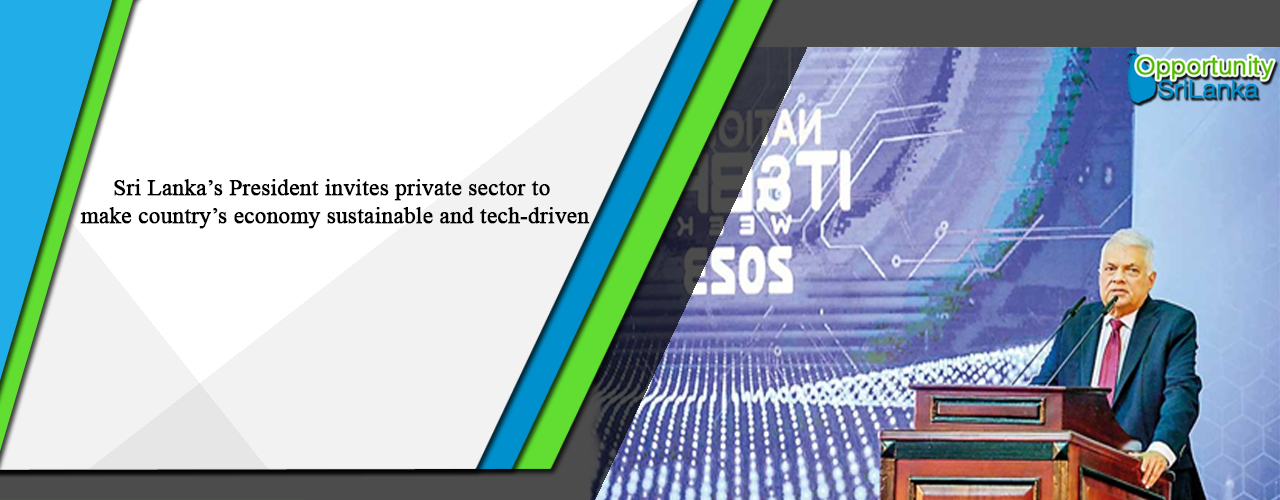Sri Lanka’s President invites private sector to make country’s economy sustainable and tech-driven
Ada Derana: President Ranil Wickremesinghe, during the inauguration of the National Information Technology and Business Process Management Professional (IT and BPM) Exhibition at Sirimavo Bandaranaike Hall on 11 October, opened the doors for active participation of the private sector in the nation’s journey toward a technology-driven and eco-friendly green economy.
The exhibition, aimed at accelerating Sri Lanka’s transition to a digital economy, seeks to provide insights into new technology, promote skill development, offer career guidance and create avenues for IT entrepreneurship. It is expected to benefit school students, university students, vocational education candidates, job seekers and aspiring entrepreneurs in the Western Province.
As part of this three-day event, opportunities for industry and career counselling, internships, job placements and workshops on IT and business processes will be offered by technical education institutions.
In his address, President Wickremesinghe highlighted the aspirations of many exhibition attendees to seek opportunities abroad. He encouraged a shift in focus towards how the nation can benefit from the event. With Sri Lanka’s economy in recovery, the President stressed the importance of not only achieving economic stability but also addressing the repayment of loans and fulfilling import requirements, all necessitating foreign exchange reserves that might require additional loans.
The President underscored the need to break free from the debt cycle and move toward a highly competitive economy capable of thriving in the global marketplace. The goal is to augment revenue streams through both goods and services, with the expectation that such efforts will attract Sri Lankans who have left the country to return home. Key to this transformation is the three-pronged strategy of creating a competitive economy, fostering a sustainable green economy and advancing the digital economy. Notably, the digital economy requires a skilled workforce proficient in information technology.
Sri Lanka’s future hinges on its technological and green sectors. The country’s legacy of transitions, from paddy cultivation to cinnamon, coffee, tea, rubber and the present emphasis on tourism and the garment industry, is now in the past. The future beckons and to thrive in it, the nation must continually educate and produce skilled individuals, even exceeding domestic demands.
President Wickremesinghe also recognized that the future of Sri Lanka lies in the technology and green sectors, requiring comprehensive training initiatives to produce a workforce exceeding the country’s immediate needs. He encouraged citizens to explore job opportunities within Sri Lanka, a move that not only bolsters the local economy but also reduces the outflow of foreign exchange.
OSL take:
Sri Lanka’s focus on introducing technological developments to the country and transforming the country into an e-economy have presented new business/investment opportunities in the ICT and digital infrastructure development sectors. The country’s plan of becoming an emerging business destination in the South Asian region will further expand the demand in the ICT and digital infrastructure development sectors. The policy by the government of Sri Lanka to digitalize the country’s broadcast media and improve connectivity among state institutions have opened opportunities in the state sector as well. The growth and profits recorded by local businesses engaged in the ICT and digital infrastructure development sectors in the country is indicative of the growing business potential in these sectors. Foreign businesses/investors could confidently explore the expanding business/investment opportunities in Sri Lanka’s ICT and digital infrastructure development sectors.
| Article Code : | VBS/AT/20231023/Z_1 |

